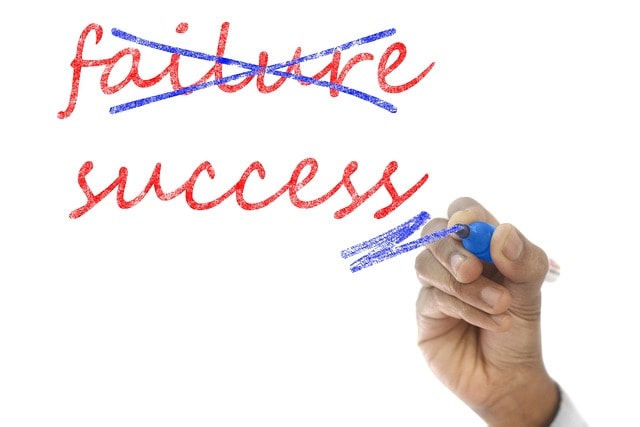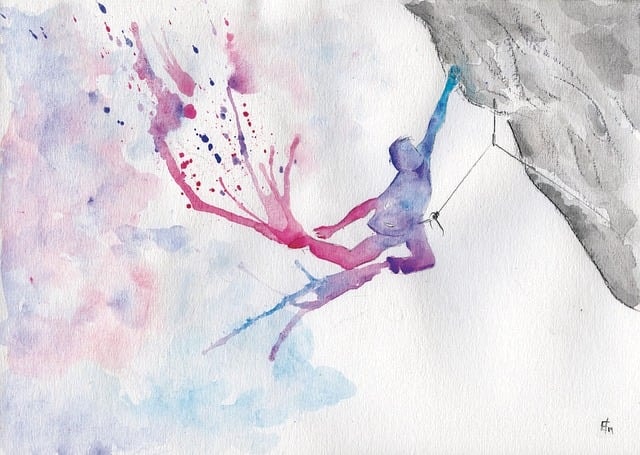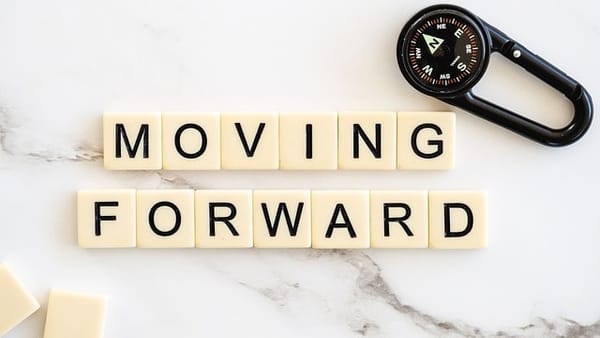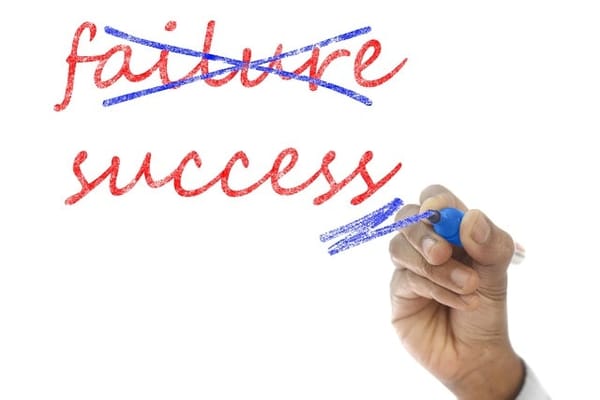Key Takeaways:
- Embracing failure is crucial for personal and professional growth.
- Creating psychological safety encourages innovation and learning.
- Intelligent failures are stepping stones to success.
Introduction: The Unseen Power of Failure
Failure often wears a cloak of negativity, yet it holds the key to unlocking personal and professional growth. In the business world, especially in the bustling innovation hub of Silicon Valley, failure is not just an option—it's a necessity. Entrepreneurs who embrace failure as a learning tool often find themselves on the path to success. This article delves into how Strategic Coach emphasizes the importance of failure in fostering growth and innovation.
The Importance of Embracing Failure
Failure is not the end; it's a stepping stone. In the entrepreneurial journey, making mistakes is inevitable. However, the fear of failure can stifle creativity and innovation. By embracing failure, entrepreneurs can push boundaries and explore new ideas without the fear of making mistakes. This mindset shift is crucial for both personal and professional growth.
Creating an environment where failure is seen as a learning opportunity rather than a setback is essential. This involves fostering psychological safety within teams, where team members feel comfortable admitting mistakes and experimenting with new ideas. Such an environment encourages continuous learning and improvement, paving the way for success.

Psychological Safety: The Foundation of Innovation
Creating psychological safety is paramount in any organization aiming for innovation. When employees feel safe to express their ideas and admit mistakes, they are more likely to contribute to the team's success. This safety net allows for intelligent failures, where the lessons learned outweigh the costs of the mistake.
Harvard Business School emphasizes the role of psychological safety in fostering a culture of innovation. By encouraging open conversations and feedback, leaders can create an environment where employees are not afraid to take risks. This approach not only boosts morale but also drives the organization forward by harnessing the collective creativity of its team members.

Intelligent Failures: Learning from Mistakes
Not all failures are created equal. Intelligent failures occur when calculated risks are taken, and the outcomes provide valuable insights. These failures are essential for growth, as they offer lessons that can lead to future success. Understanding the different types of failures helps organizations focus on learning rather than punishment.
In the fast-paced world of business, intelligent failures are often the perfect storm for innovation. By analyzing what went wrong and why, leaders can develop strategies to avoid similar pitfalls in the future. This process of learning from mistakes is crucial for continuous improvement and long-term success.
The Role of Leadership in Embracing Failure
Leadership plays a critical role in shaping an organization's attitude towards failure. Leaders who openly discuss their own failures and the lessons learned create a culture of transparency and trust. This openness encourages employees to take risks and innovate without the fear of repercussions.
Effective leaders understand that failure is an integral part of the growth process. By focusing on the lessons learned rather than the mistakes made, they can guide their teams towards success. This approach not only fosters a culture of resilience but also empowers employees to embrace challenges and push the boundaries of innovation.

Strategies for Creating a Culture of Failure
Creating a culture that embraces failure requires intentional strategies. Organizations must focus on building an environment where employees feel supported and encouraged to take risks. This involves providing the necessary resources and training to help employees learn from their mistakes and grow.
One effective strategy is to celebrate failures as learning opportunities. By recognizing and rewarding employees who take calculated risks and learn from their mistakes, organizations can foster a culture of innovation and continuous improvement. This approach not only boosts morale but also encourages employees to think creatively and push the boundaries of what's possible.
The Impact of Failure on Personal Growth
Failure is not just a professional phenomenon; it also plays a significant role in personal growth. By embracing failure, individuals can develop resilience and determination, essential traits for overcoming life's challenges. This mindset shift allows individuals to view setbacks as opportunities for growth rather than obstacles.
In the journey of personal development, failure is a powerful teacher. It provides valuable insights into one's strengths and weaknesses, helping individuals understand themselves better. By learning from their mistakes, individuals can make informed decisions and take calculated risks, ultimately leading to personal growth and success.

Overcoming the Fear of Failure
Fear of failure is a common barrier to success. It can prevent individuals from taking risks and exploring new ideas. However, by understanding the root causes of this fear, individuals can develop strategies to overcome it and embrace failure as a learning opportunity.
One effective way to overcome the fear of failure is to reframe it as a natural part of the learning process. By focusing on the lessons learned rather than the mistakes made, individuals can develop a growth mindset that encourages continuous improvement. This approach not only boosts confidence but also empowers individuals to take risks and pursue their goals with determination.

The Connection Between Failure and Innovation
Innovation and failure are two sides of the same coin. In the pursuit of new ideas and solutions, failure is inevitable. However, by embracing failure, organizations can unlock the potential for innovation and growth.
In the world of business, failure is often the catalyst for innovation. By analyzing what went wrong and why, organizations can develop new strategies and solutions that drive success. This process of learning from mistakes is crucial for fostering a culture of innovation and continuous improvement.

The Impact of Failure on Team Dynamics
Failure can have a significant impact on team dynamics. It can either strengthen a team by fostering collaboration and learning or create tension and conflict. By embracing failure as a learning opportunity, teams can develop a culture of trust and collaboration that drives success.
In a supportive environment, failure can bring teams closer together. By openly discussing mistakes and learning from them, team members can develop a deeper understanding of each other's strengths and weaknesses. This collaborative approach not only enhances performance but also fosters a culture of innovation and continuous improvement.

The Role of Creativity in Embracing Failure
Creativity is a powerful tool for overcoming failure and achieving success. It involves thinking outside the box and exploring new ideas and solutions. By embracing failure, individuals and organizations can unlock their creative potential and drive innovation.
In the face of failure, creativity provides the inspiration to explore new possibilities and develop innovative solutions. By fostering a culture of creativity, organizations can encourage employees to take risks and embrace failure as a learning opportunity. This approach not only drives innovation but also empowers employees to think creatively and push the boundaries of what's possible.
The Connection Between Failure and Leadership
Leadership plays a crucial role in shaping an organization's attitude towards failure. Leaders who embrace failure as a learning opportunity create a culture of transparency and trust that encourages innovation and growth.
Effective leaders understand that failure is an integral part of the growth process. By focusing on the lessons learned rather than the mistakes made, they can guide their teams towards success. This approach not only fosters a culture of resilience but also empowers employees to embrace challenges and push the boundaries of innovation.

The Role of Experimentation in Embracing Failure
Experimentation is a key component of the learning process. It involves taking calculated risks and exploring new ideas and solutions. By embracing failure, organizations can unlock the potential for innovation and growth.
In the world of business, experimentation is often the catalyst for innovation. By analyzing what went wrong and why, organizations can develop new strategies and solutions that drive success. This process of learning from mistakes is crucial for fostering a culture of innovation and continuous improvement.
The Impact of Failure on Organizational Culture
Failure can have a significant impact on organizational culture. It can either strengthen a culture by fostering collaboration and learning or create tension and conflict. By embracing failure as a learning opportunity, organizations can develop a culture of trust and collaboration that drives success.
In a supportive environment, failure can bring teams closer together. By openly discussing mistakes and learning from them, team members can develop a deeper understanding of each other's strengths and weaknesses. This collaborative approach not only enhances performance but also fosters a culture of innovation and continuous improvement.

The Role of Determination in Embracing Failure
Determination is a key trait for overcoming failure and achieving success. It involves the ability to persevere and continue pursuing one's goals despite setbacks. By developing determination, individuals and organizations can navigate challenges and embrace failure as a learning opportunity.
In the face of failure, determination provides the strength to persevere and push forward. It allows individuals to view setbacks as temporary obstacles rather than insurmountable barriers. By cultivating determination, individuals can develop the confidence and resilience needed to overcome challenges and achieve their goals.
The Connection Between Failure and Personal Growth
Failure is not just a professional phenomenon; it also plays a significant role in personal growth. By embracing failure, individuals can develop resilience and determination, essential traits for overcoming life's challenges. This mindset shift allows individuals to view setbacks as opportunities for growth rather than obstacles.
In the journey of personal development, failure is a powerful teacher. It provides valuable insights into one's strengths and weaknesses, helping individuals understand themselves better. By learning from their mistakes, individuals can make informed decisions and take calculated risks, ultimately leading to personal growth and success.

The Role of Feedback in Embracing Failure
Feedback is a crucial component of the learning process. It provides valuable insights into what went wrong and how to improve. By actively seeking feedback, individuals and organizations can learn from their mistakes and make informed decisions moving forward.
Creating a culture of feedback involves encouraging open and honest communication within teams. By providing constructive feedback and recognizing the efforts of team members, organizations can foster a culture of continuous improvement. This approach not only enhances performance but also empowers employees to take risks and embrace failure as a learning opportunity.
The Impact of Failure on Team Dynamics
Failure can have a significant impact on team dynamics. It can either strengthen a team by fostering collaboration and learning or create tension and conflict. By embracing failure as a learning opportunity, teams can develop a culture of trust and collaboration that drives success.
In a supportive environment, failure can bring teams closer together. By openly discussing mistakes and learning from them, team members can develop a deeper understanding of each other's strengths and weaknesses. This collaborative approach not only enhances performance but also fosters a culture of innovation and continuous improvement.

Summary
Embracing failure is not just a strategy; it's a mindset that fuels personal and professional growth. By fostering psychological safety and encouraging intelligent failures, organizations can create a culture of innovation and continuous improvement. Leaders play a crucial role in shaping this culture by promoting transparency, trust, and resilience. As individuals and organizations learn to embrace failure, they unlock the potential for creativity, innovation, and success.

1. Why is embracing failure important for entrepreneurs?
Embracing failure is crucial for entrepreneurs as it fosters a culture of innovation and continuous improvement. By viewing failure as a learning opportunity, entrepreneurs can push boundaries, explore new ideas, and ultimately achieve success.
2. How can organizations create a culture that embraces failure?
Organizations can create a culture that embraces failure by fostering psychological safety, encouraging open communication, and celebrating intelligent failures. By providing the necessary resources and support, organizations can empower employees to take risks and learn from their mistakes.
3. What role does leadership play in embracing failure?
Leadership plays a critical role in shaping an organization's attitude towards failure. Effective leaders promote transparency, trust, and resilience, encouraging employees to take risks and embrace failure as a learning opportunity. This approach fosters a culture of innovation and continuous improvement.
Your Friend,
Wade






